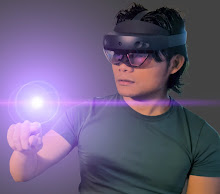As I reflect on some of the great thinkers on technology (and there are many more I’m simply unaware of), what might these key figures say about the subject? This is my way of exploring and expressing my understanding of the ideas I’ve encountered in their work. I use casual language here so I can share my thoughts openly, without the constraints of formal academic writing.
Roundtable discussion
To this discussion concerning technology, I bring in Latour and Heiddeger as contrasting alternatives. Not Actor-Network Theory where every actors and actants, be it human or non-human are reduced to nodes in a network and we as ‘netural’ observants simply describe a busy system. Not Enframing either because capital T Technology does not altogether reduce the ‘lifeworld’ as commodified resources through use of technology, I appreciate the concern though, thanks Heiddeger. I know Martin isn’t at all doom and gloom about tech but he is concerned enough to warn us lest we’re en route to dehumanisation. But RATHER, technologies enable various lifeworlds through their mediating roles!, Don Ihde would say. Now, whether it enriches it or reduces it through abstraction is another matter. Edmund might appreciate this updated, technologically rich lifeworld of Ihde, after all he was just born before computers and before the digital age. Maybe that’s why Don has a book called Husserl’s Missing Technologies. Different tech can be looked at as “things themselves” and we’re coming back to it, don’t worry Ed. John Dewy, evert the pragmatic just wants things done and if it works, great. It’s good to strive for improvement and progress. I just hope he doesn’t simply reduce us only as productive, efficient, and highly performing entities. Surely, human expereicnce and human perception has inherent value that is worth looking into. He might get along well with Bruno Latour with this one – although he seems blasé with either, he just likes watching I guess. Let’s not forget about Maurice, he isn’t so much opposing or siding strongly with any of the lads here but he can have the last word and tell each one of them that none of these matters without bodies! All we expereience is a bodily experience. This seems really obvious. And experience itself is an exclusive, privileged thing that objects are simply unentitled to. Be it a rich, deep and meaningful or a depressing, abstracted, perceived as a mere resource to be gobbled up, you need bodies, end of story. Maurice would go on to say, “you don’t have bodies, you ARE bodies”. A short person has an altogether differnt lifeworld to a tall one’s. Tech will come into play as extensions of our “body-ness” – embodiment and all that.
The non-pheno lads, Dewey and Latour are good to include here because they enhance the discussion, even offering alternatives to looking at technology that removes this ‘mushy’, subjective, hard to capture human experience bit (ill take that as a challenge). I’d wager, teh world is the way it is today because human experience drives it! Be it to move away from teh inerent natural pain and suffeiring default and to a better and joyful world, or simply to stamp anywhere and everywhere our human mark, the world is colorful today because of humans in it along with all the spectrum of emotions that come with it. Science and tech are offshoots of that. We discover, innovate and pursue because we crave experience. Humans simply wonder and things (tech and all non-nature stuff) come about.
Phenomenology is a richer way of looking at things and postphenomenology just adds that technology flavour and doubles down on it. There are other ways of studying MRDTs sure but noone seems to be doing postphenomenology on them yet. So many technical stuff as outlined in the next section.
In all seriousness, I need to write this bit up well in my research narrative in my full proposal.
